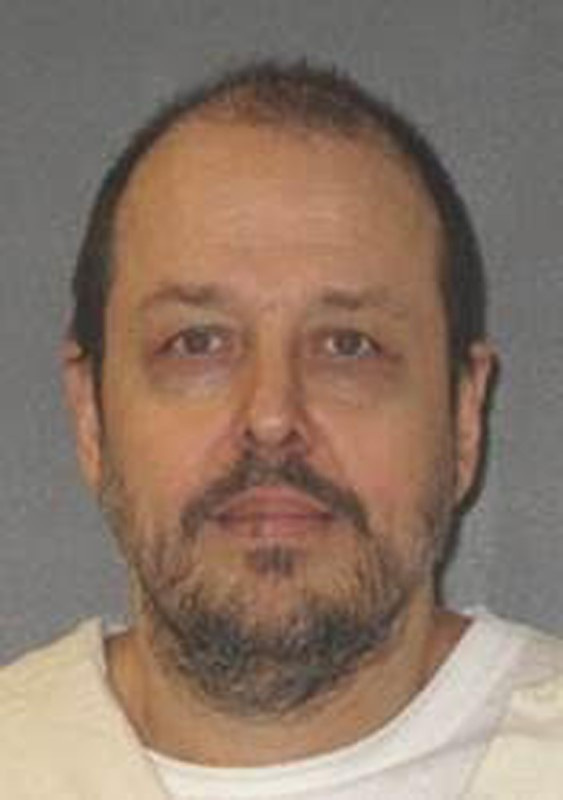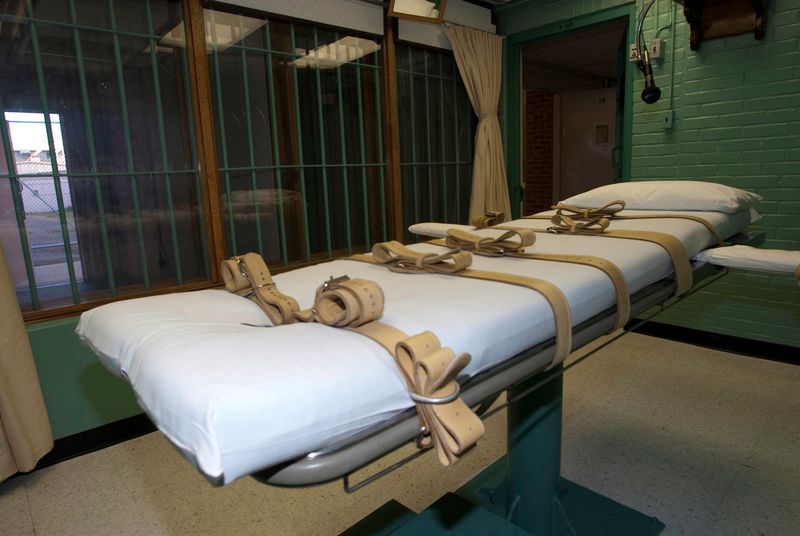By Brad Brooks and Jonathan Allen
(Reuters) -The Texas Supreme Court on Thursday temporarily halted the execution of a man scheduled to become the first person to be put to death in the United States for murder attributed to shaken baby syndrome, according to a court document.
The Texas Supreme Court ruled in favor of a bipartisan group of state lawmakers who asked that the execution, scheduled to take place on Thursday evening, be delayed.
The lawmakers requested the delay after issuing an unprecedented subpoena on Wednesday for death row inmate Robert Roberson to appear before them and answer questions about his case.
Texas representatives Joe Moody and Jeff Leach, who orchestrated Roberson's subpoena and have championed his cause, praised the Texas Supreme Court decision in a written statement.
"We look forward to welcoming Robert to the Texas Capitol, and along with 31 million Texans, finally giving him - and the truth - a chance to be heard," the lawmakers wrote.
The order comes after a district court on Thursday issued a temporary injunction halting his execution, which was overturned by the Texas Court of Criminal Appeals a few hours later.
Texas Supreme Court Justice Evan Young, in his order halting the execution, said the decision by state lawmakers to subpoena Roberson for questioning had created a clash among the three branches of government that must be resolved before any execution could be carried out.
The issue was now a matter of civil law, Young wrote, saying that if the sentence is carried out, the witness obviously could appear before the Texas House Committee on Judiciary and Civil Jurisprudence that subpoenaed him to appear before them.
The Texas Attorney General's Office, which has fought to carry out the execution, did not reply to requests for comment. The office of Texas Governor Greg Abbott, who has remained silent about Roberson's case, also did not provide comment.
The fight over Roberson's execution in Texas, the U.S. state that has by far executed more inmates than any other, has been extraordinary.
Roberson, 56, was convicted of killing his 2-year-old daughter, Nikki, in 2002. The prosecution said he took her to the hospital where scans showed she had internal brain trauma of the sort that at the time was thought to indicate a baby had been violently shaken by someone.
In the days before her death, a doctor had diagnosed Nikki as having a viral infection and a fever, and Roberson has long said that on the morning of her death he found she had fallen out of bed.
Many lawmakers in the Republican-controlled Texas House of Representatives have questioned his conviction, leading the House committee's effort to buy Roberson time by issuing the subpoena for him to testify before them next week.
The lead detective who helped secure Roberson's conviction has since said he believes Roberson is innocent.
The Texas Board of Pardons and Paroles denied Roberson's bid for clemency on Wednesday.
The U.S. Supreme Court earlier on Thursday denied a petition by Roberson to stay his execution.
In a response to that petition, the Texas Attorney General's Office said Roberson had failed to prove his "actual innocence," and that the Texas Court of Criminal Appeals had ruled Nikki's injuries were "inconsistent with a short fall from a bed or complications from a virus."

Roberson's lawyers told the Supreme Court the medical theory used to convict him in 2003 "has since been entirely discredited."
"Not only was abuse presumed in 2003," his lawyers wrote, "but Roberson's blunted affect and aloof mannerisms, manifestations of his Autism Spectrum Disorder mistaken for a lack of care, led medical staff and law enforcement alike to presume culpability."
